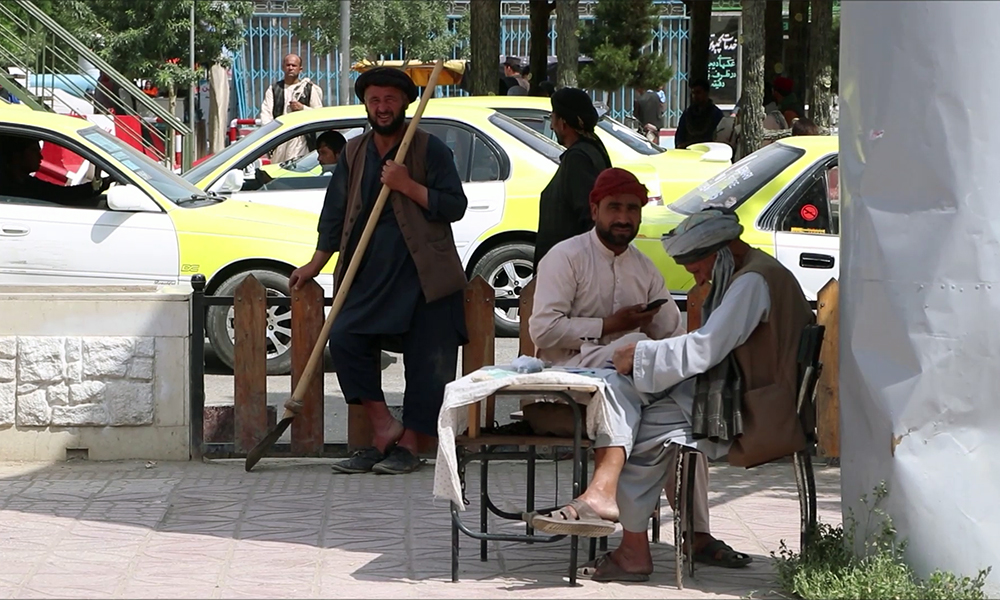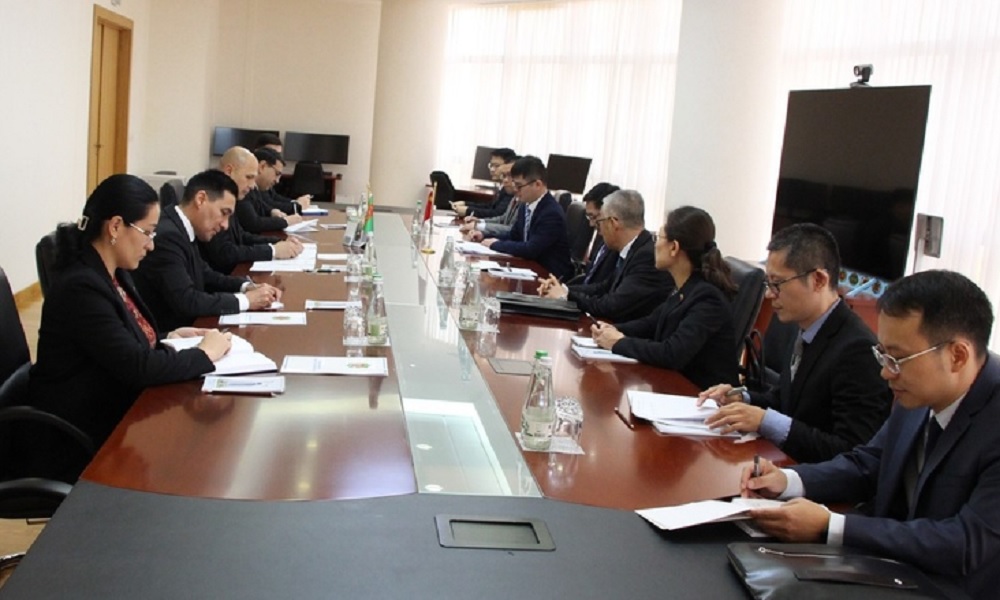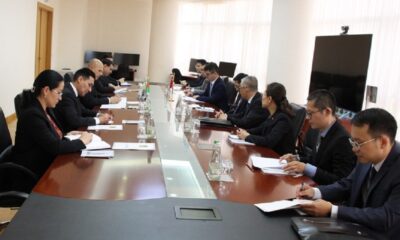Latest News
Afghanistan’s contracted economy faces uncertainty: World Bank

The Afghan economy is expected to hover around no-growth territory this year, amid uncertainty after contracting by 25% since August 2021, while Islamic Emirate of Afghanistan’s (IEA) restrictive policies on women’s education and work will further lower the country’s growth prospects, says the World Bank in a report released Tuesday.
The report titled Uncertainty After Fleeting Stability, shows how Afghanistan’s economic downturn has affected all sectors. Services, which make up 45% of the country’s GDP, shrank by 6.5% last year, following a staggering 30% drop in 2021. The agriculture sector, which accounts for 36% of GDP, declined by 6.6% in 2022 due to unfavorable weather conditions and farmers’ lack of resources to cope.
The industrial sector also saw a contraction of 5.7% last year, as businesses—especially those owned by women—faced closures due to limited access to resources and financial challenges. Following a record high in 2022, exports have been declining this year while imports remain robust, resulting in a growing trade deficit, the World Bank said.
Dampened demand, better supply conditions, and a stronger currency caused inflation to sharply decline from its 18.3% peak last July, leading to deflation since April 2023. Although deflation may initially increase real wages, prolonged deflation could stifle business growth and increase unemployment, the bank warned.
A potential reduction in international aid due to fiscal pressures in donor countries and the restrictive policies on women and girls pose risks to Afghanistan’s recovery, as do concerns about stability of the banking sector and dysfunctional payments system, the report said.
“Afghanistan’s economy is fragile, relies heavily on external support and its private sector is weak,” said Melinda Good, World Bank Country Director for Afghanistan. “To recover, the country needs to prioritize spending on human capital, basic services and climate resilience and address harmful gender policies.”
According to the World Bank’s latest Afghanistan Welfare Monitoring Survey, also released Tuesday,one in two Afghans remain poor and recent gains in welfare have come at the cost of possibly exhausting all coping strategies and household resources.
Since the economic crash of 2021, households report an improvement in their capacity to meet basic needs, but deprivation and vulnerability remain high. Afghan households have mobilized extra labor to make ends meet, mainly among youth and women. The overall increase in labor supply has outpaced demand, doubling unemployment.
While improved security has increased primary school attendance and narrowed gender and rural-urban gaps, millions of primary-school-age girls and boys remain out of school mainly due to a lack of access. Since the ban on female secondary school attendance was imposed, only 3% of girls attend secondary school. Among boys aged 13-18, only 44% are receiving a secondary education, World Bank said.
“Afghanistan’s future growth potential hinges on improving human capital. What is happening to secondary education is a cause of grave concern,” added Good. “Almost no girls and less than half of the country’s boys are getting a secondary education. Where will the teachers and doctors of tomorrow come from? A country cannot grow if it willingly foregoes the potential of its citizens.”
Latest News
Ten people killed in Baghlan attack

Ten people were killed by unknown individuals in Afghanistan’s northern Baghlan province on Thursday night, police said on Friday.
The incident happened as the victims were doing Zikr at a mosque in Shahr-e-Kuhna of Nahrin district, police said in a statement.
The statement said that they used to regularly go to mosques and monasteries at night after returning from work.
Abdul Ghayoor Khadim, a provincial police official, said that several people were arrested in connection with the incident, adding that an investigation was launched.
Latest News
Chinese, Turkmen officials meet to discuss Afghanistan

Deputy Minister of Foreign Affairs of Turkmenistan Serdar Muhammetdurdiyev on Thursday met with Chinese special envoy for Afghanistan, Yue Xiaoyong, the Foreign Ministry of Turkmenistan announced.
During the meeting, the sides discussed priority vectors of strategic interstate cooperation built on a long-term, mutually beneficial basis, as well as exchanged views on the implementation of previously reached agreements.
It was noted that personal contacts between the leaders of the two countries play a key role in intensifying the interstate dialogue, which give a strong impulse to further development and expansion of Turkmen-Chinese ties.
It was emphasized that Turkmenistan considers multilateral international platforms for maintaining stability in Afghanistan as an important factor in promoting sustainable improvement of socio-economic state of the neighboring country. The sides exchanged views on the preparations to the 5th meeting of Foreign Ministers of Afghanistan's Neighboring States to be held in Turkmenistan.
The interlocutors reaffirmed that Turkmenistan and China will continue to provide all-round support for the economic restoration of Afghanistan.
Latest News
U.S. House approves bill on evacuation of Afghan allies

The U.S. House Of Representatives has passed a legislation on evacuation of Afghans who assisted Americans during the 20-year war in Afghanistan.
“The passage of the CARE Authorization Act of 2024 further underscores the commitment made by the U.S. government to safeguard those who served shoulder-to-shoulder with our personnel during the twenty-year mission in Afghanistan,” Congresswoman Dina Titus said in a statement.
“The State Department has made it clear: There is no deadline for the crucial job of protecting Afghan allies. By authorizing the Coordinator for Afghan Relocation Efforts at the State Department, we can more effectively relocate and resettle those who have qualified to immigrate to the U.S. as a result of their service to this country.”
In 2022 the State Department established a specialized office called the Coordinator for Afghan Relocation Efforts (CARE) to streamline and coordinate the ongoing relocation and resettlement process for eligible Afghans from Afghanistan and Pakistan to the United States.
The CARE Authorization Act of 2024 will formally authorize the CARE office at the State Department for three years and grant important authorities to advance its mission. These include an extension of authorities to enter into personal services contracts as well as measures to streamline the transfer of funds to and from other agencies involved in the Afghan relocation mission.
-

 Sport5 days ago
Sport5 days agoFIFA unveils Innovative Club World Cup Trophy ahead of new tournament in 2025
-

 Latest News5 days ago
Latest News5 days agoCanada sent 19 failed asylum seekers back to Afghanistan last year
-

 Sport4 days ago
Sport4 days agoAbu Dhabi’s thrilling T10 tournament just days away
-

 World4 days ago
World4 days agoBiden allows Ukraine to use US arms to strike inside Russia
-

 Sport4 days ago
Sport4 days agoAfghanistan beat UAE by 169 runs in U19 tri-series
-

 Business5 days ago
Business5 days agoMullah Baradar inaugurates a blanket factory in Kabul
-

 Latest News3 days ago
Latest News3 days agoTajikistan trumps Afghanistan 3-1 in football friendly
-

 World3 days ago
World3 days agoLebanon, Hezbollah agree to US proposal for ceasefire with Israel, Lebanese official says
























